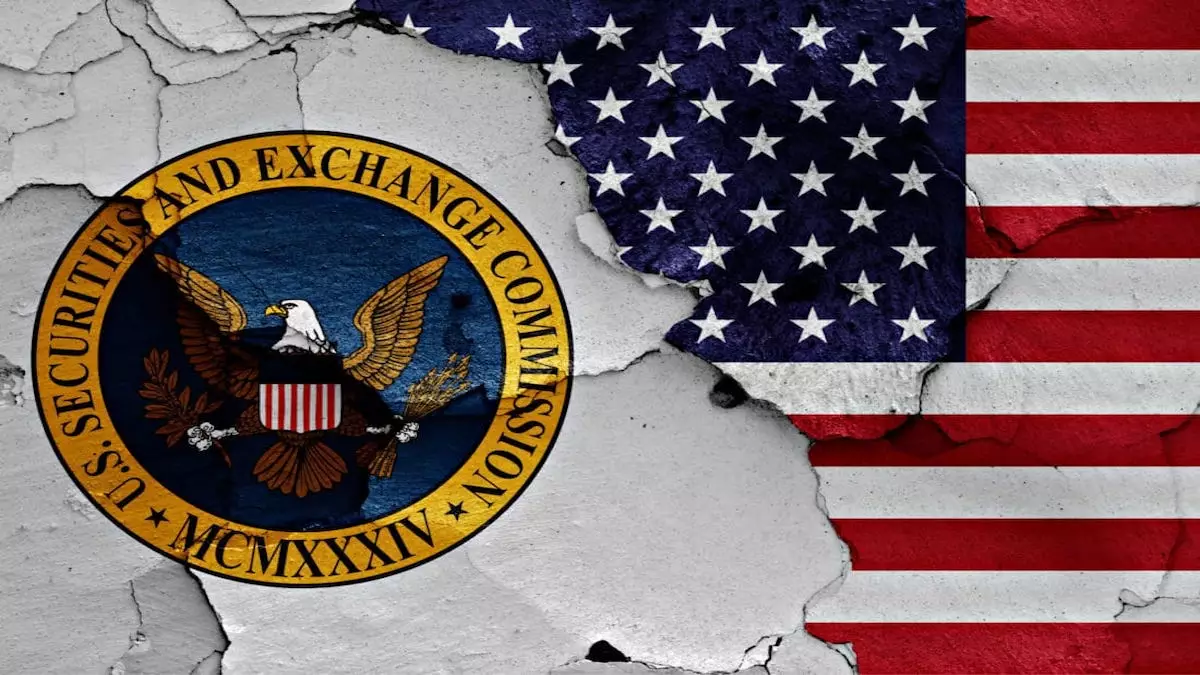The recent Wells notice issued by the U.S. SEC to OpenSea has ignited a heated debate on the regulation of digital assets, particularly non-fungible tokens (NFTs). The SEC alleges that some NFTs traded on the platform may be considered unregistered securities, raising concerns about the legality of OpenSea’s operations. This move by the SEC is part of a broader effort to apply securities laws to the crypto and NFT industries, signaling a significant shift in regulatory scrutiny.
The SEC’s accusation against OpenSea revolves around the platform potentially functioning as an unregistered securities exchange due to the sale of NFTs that could be classified as securities. This has put OpenSea CEO Devin Finzer on the defensive, as the company faces the looming threat of enforcement action from the SEC. The implications of this regulatory crackdown extend beyond OpenSea to the entire NFT market, with creators and investors alike bracing for potential consequences.
The SEC’s aggressive stance on regulating NFTs poses a significant challenge to the industry’s core principles of decentralization and creative freedom. By attempting to fit NFTs into the traditional securities law framework, the SEC risks stifling the artistic expression that has fueled the vibrant NFT marketplace. The ongoing investigation of Yuga Labs, the creator of the popular Bored Ape Yacht Club NFT collection, underscores the regulatory scrutiny facing successful NFT projects and the broader market.
If NFTs are classified as securities, the repercussions will not be limited to creators alone; platforms and investors will also feel the impact. The potential for increased regulatory oversight and compliance costs could price out smaller creators from the market and limit access to NFT platforms. This shift towards centralized control contradicts the decentralized ethos that underpins the NFT ecosystem, posing a fundamental threat to its future viability.
The Need for a Balanced Approach
While the SEC’s actions may spur calls for clearer regulations tailored to NFTs, a measured and thoughtful approach to oversight is essential. Balancing consumer protection with the unique structure of NFTs and blockchain technology requires a nuanced understanding of the market dynamics. The outcome of the SEC’s case against OpenSea will set a precedent for future regulation in the NFT space and could shape the industry’s trajectory.
As the battle between the SEC and OpenSea unfolds, the future of the NFT market hangs in the balance. While regulatory clarity can bring stability to a maturing market, it must not come at the expense of stifling innovation and creativity. Finding a middle ground that safeguards consumer interests while preserving the decentralized nature of NFTs is crucial for the long-term health of the industry. Ultimately, the outcome of this regulatory showdown will determine the fate of NFTs as a mainstream asset class and a vehicle for artistic expression.
















Leave a Reply